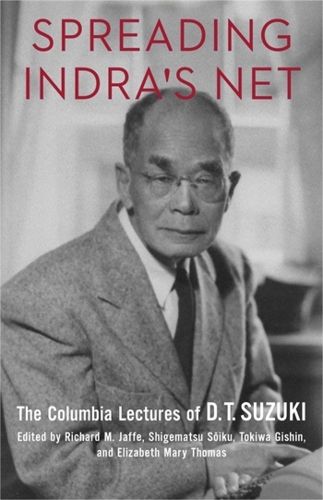Readings Newsletter
Become a Readings Member to make your shopping experience even easier.
Sign in or sign up for free!
You’re not far away from qualifying for FREE standard shipping within Australia
You’ve qualified for FREE standard shipping within Australia
The cart is loading…






D. T. Suzuki's 1950s lectures at Columbia University were foundational for the postwar Zen boom. Speaking in a soft voice in a bookcase-lined room, Suzuki, then in his eighties, introduced East Asian Buddhism to a rapt audience of the general public, scholars, and students. He offered a distinctive interpretation of Zen, weaving together his understanding of classical Buddhist texts, especially the Flower Garland Sutra, with Christian mysticism, psychology, and twentieth-century European and American philosophy. The freewheeling lectures captivated an audience drawn from the New York intelligentsia and art world-including Carolyn Brown, John Cage, Arthur Danto, Sari Dienes, Erich Fromm, Phillip Guston, Ibram Lassaw, and Dorothy Norman-and catalyzed public interest in Buddhism.
Spreading Indra's Net presents Suzuki's 1952-1953 lectures in full, giving a vivid look at how one of the most important global Buddhist figures of the twentieth century interpreted Zen for an American audience. Drawing on archival research in Japan and the United States, editor Richard M. Jaffe provides an extensive introduction that traces Suzuki's path to Columbia, analyzes the content of the lectures, and surveys their reception. Among the most accessible works of a major figure and a record of a crucial moment in New York history, this book displays Suzuki's gifts as a teacher, scholar, writer, and thinker.
$9.00 standard shipping within Australia
FREE standard shipping within Australia for orders over $100.00
Express & International shipping calculated at checkout
Stock availability can be subject to change without notice. We recommend calling the shop or contacting our online team to check availability of low stock items. Please see our Shopping Online page for more details.
D. T. Suzuki's 1950s lectures at Columbia University were foundational for the postwar Zen boom. Speaking in a soft voice in a bookcase-lined room, Suzuki, then in his eighties, introduced East Asian Buddhism to a rapt audience of the general public, scholars, and students. He offered a distinctive interpretation of Zen, weaving together his understanding of classical Buddhist texts, especially the Flower Garland Sutra, with Christian mysticism, psychology, and twentieth-century European and American philosophy. The freewheeling lectures captivated an audience drawn from the New York intelligentsia and art world-including Carolyn Brown, John Cage, Arthur Danto, Sari Dienes, Erich Fromm, Phillip Guston, Ibram Lassaw, and Dorothy Norman-and catalyzed public interest in Buddhism.
Spreading Indra's Net presents Suzuki's 1952-1953 lectures in full, giving a vivid look at how one of the most important global Buddhist figures of the twentieth century interpreted Zen for an American audience. Drawing on archival research in Japan and the United States, editor Richard M. Jaffe provides an extensive introduction that traces Suzuki's path to Columbia, analyzes the content of the lectures, and surveys their reception. Among the most accessible works of a major figure and a record of a crucial moment in New York history, this book displays Suzuki's gifts as a teacher, scholar, writer, and thinker.